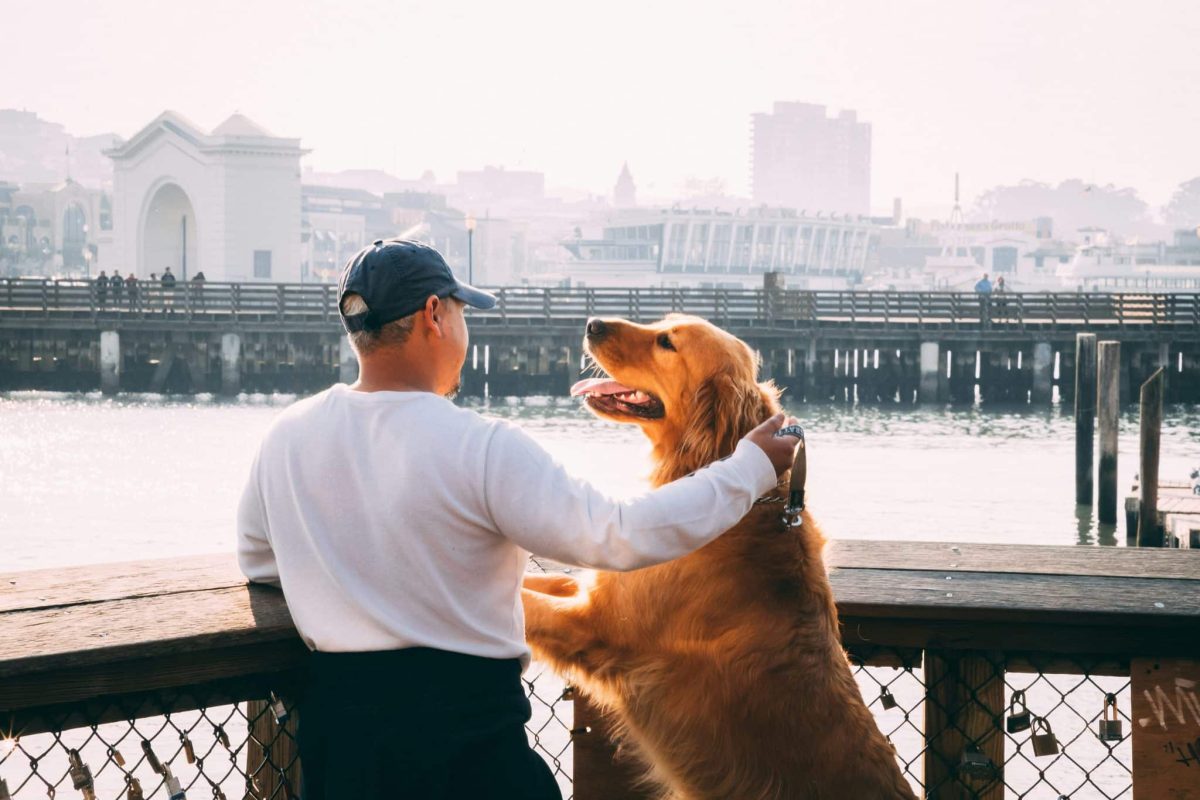 Shutterstock
Shutterstock
Have you noticed your dog going wild when the doorbell rings? It might seem like an overreaction—barking, jumping, or pacing anxiously—but for many dogs, the sound of a doorbell is anything but trivial. While it may seem like simple excitement or territorial behavior, deeper reasons are at play, rooted in instincts, past experiences, and heightened sensory perception. Understanding why dogs hate the doorbell can help you better manage their response and make those unexpected dings a bit less chaotic for both you and your furry friend.
The Instinct to Guard and Protect
 Shutterstock
Shutterstock
Dogs are hardwired with an instinct to guard and protect their territory, a trait passed down from their wild ancestors. In the wild, unexpected noises often signal the approach of a predator or another threat. While your dog might be far removed from those days of warding off wolves or rival packs, the sound of a doorbell triggers this ancient, protective instinct. Your dog perceives the sound as a potential intruder entering their territory, and barking is their way of warning the “invader” to stay away. Even if they’ve never experienced a real threat, the instinct to protect is deeply ingrained in their behavior.
Startle Reflex and the Element of Surprise
 Shutterstock
Shutterstock
Another reason dogs hate the doorbell is the startle reflex. A doorbell is loud, sudden, and completely unpredictable—exactly the kind of noise that triggers a startled response. Dogs, especially those who are more sensitive to sound, may perceive the sudden noise as a threat. This reaction is similar to when a person is startled by a loud car horn or an unexpected clap of thunder. For dogs, the element of surprise creates an adrenaline rush, causing them to bark or run around anxiously. The surprise factor adds to their stress, and each time it happens, the reaction can become more intense.
Association with Unfamiliar Guests
 Shutterstock
Shutterstock
For some dogs, the doorbell isn’t just a random noise; it’s a signal that unfamiliar people are about to enter their home. Dogs thrive on routine and familiarity, and the arrival of guests can be a major disruption. If your dog associates the doorbell with strangers invading their safe space, their negative reaction is an attempt to deal with this discomfort. This is especially true for dogs who are shy, nervous, or not well-socialized. Their barking and anxious behavior serve as a defense mechanism, both to alert you and to try to scare away the newcomers.
Sensory Overload and Anxiety
 Shutterstock
Shutterstock
Dogs have an incredibly heightened sense of hearing compared to humans, which means that what sounds like a simple ding-dong to us can be overwhelming to them. The volume and tone of a doorbell can be jarring, especially in a quiet house. Dogs that are prone to anxiety or sensory sensitivity may find the doorbell to be a major source of stress. It’s not just the sound itself, but the sudden break in the calm atmosphere that can trigger anxiety. For dogs who already struggle with loud noises or unexpected events, the doorbell can be a nightmare that sets off a cascade of stress-related behaviors.
Conditioning and Past Experiences
 Shutterstock
Shutterstock
Sometimes, a dog’s aversion to the doorbell is rooted in past experiences. If your dog has had a traumatic or stressful experience involving the doorbell—such as a loud argument, a frightening visitor, or a disruption of their routine—they may have learned to associate the sound with something negative. This type of conditioned response can be difficult to break, as the doorbell becomes a cue for fear or anxiety. Even if the past incident seems minor to you, it could have had a lasting impact on your dog. Reconditioning them to view the doorbell in a more neutral or positive light can be a challenge.
Reacting to the Anticipation
 Shutterstock
Shutterstock
Dogs are creatures of habit and ritual. The doorbell often sets off a predictable chain of events: ringing, people coming to the door, and the door opening. For dogs, the anticipation of what happens next can be almost too much to handle. This anticipation can make them bark or pace anxiously as they brace for whatever is coming. The unpredictability of who will be at the door, combined with the excitement or anxiety about what might happen next, fuels their intense reaction. For some dogs, the uncertainty is what gets to them, making the doorbell a high-stress trigger.
Scent and Doorbell Drama
 Shutterstock
Shutterstock
While it may seem unrelated, a dog’s sense of smell also plays a role in their reaction to the doorbell. Dogs rely heavily on scent to understand their world, and a ringing doorbell means there’s someone outside whom they can’t yet smell or see. This sensory gap creates a sense of confusion and unease. The dog may bark or react out of frustration because they can’t use their strongest sense—smell—to identify the visitor. Once the door is opened and the guest’s scent becomes available, they may calm down, but until then, their heightened senses are on full alert.
Territorial Behavior Reinforcement
 Shutterstock
Shutterstock
Sometimes, we inadvertently reinforce a dog’s territorial response to the doorbell. If a dog barks and we immediately rush to open the door or yell at them to stop, they may interpret this as a signal that their behavior is justified or effective. To them, barking worked to either alert the family or “protect” the home. This reinforcement cycle can make their doorbell reaction even more pronounced. Training techniques that focus on positive reinforcement for calm behavior can help break this pattern, but it takes time and consistency to change a behavior that has been reinforced over and over.
When in Doubt, They Just Want Your Attention
 Shutterstock
Shutterstock
Let’s face it: dogs love attention, and the doorbell provides an excellent opportunity to get it. When the doorbell rings, the household springs into action, and your dog may be eager to join in and be part of the excitement. Even negative attention, like scolding or trying to calm them down, can feel rewarding to your dog. If they realize that barking or running around brings attention from you, they’ll likely continue the behavior. For some dogs, the doorbell drama is less about fear or excitement and more about making sure they’re not left out of the action.
The Ding-Dong Dilemma
 Shutterstock
Shutterstock
The mystery of why dogs hate the doorbell boils down to a mix of instinct, sensory perception, and learned behavior. Whether they’re protecting their territory, reacting to the surprise, or just desperate to join in the fun, dogs have their reasons for getting worked up. While the doorbell might always be a source of excitement or anxiety, understanding these reactions helps us empathize with our furry friends. With training, patience, and a little creativity, we can make the doorbell experience less stressful.

 2 weeks ago
6
2 weeks ago
6


















 English (US) ·
English (US) ·